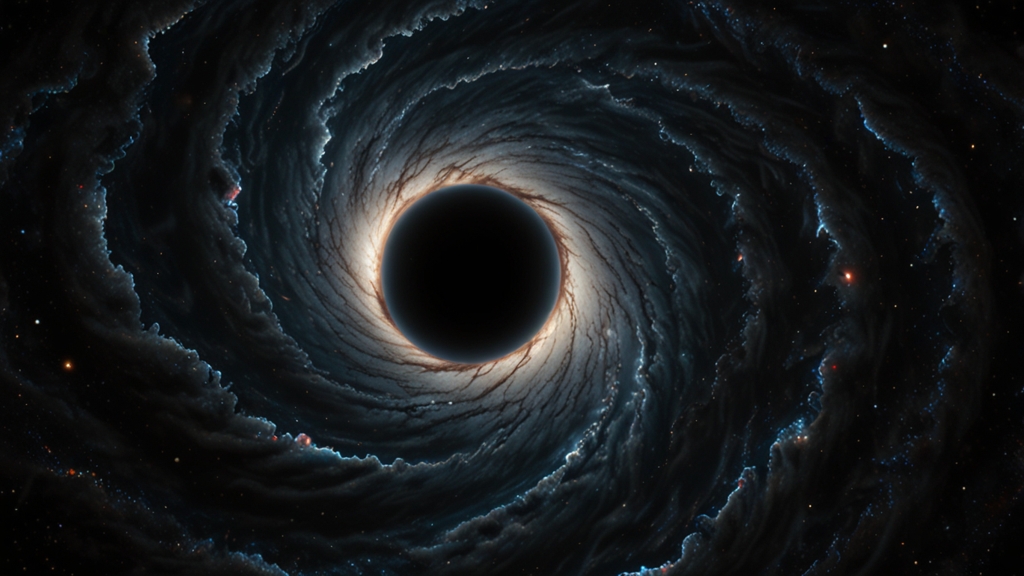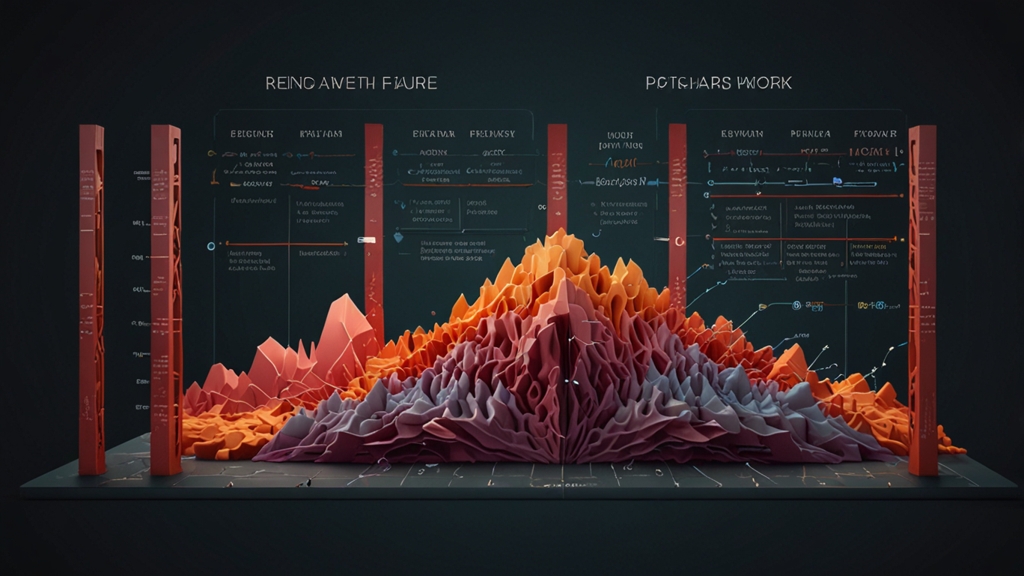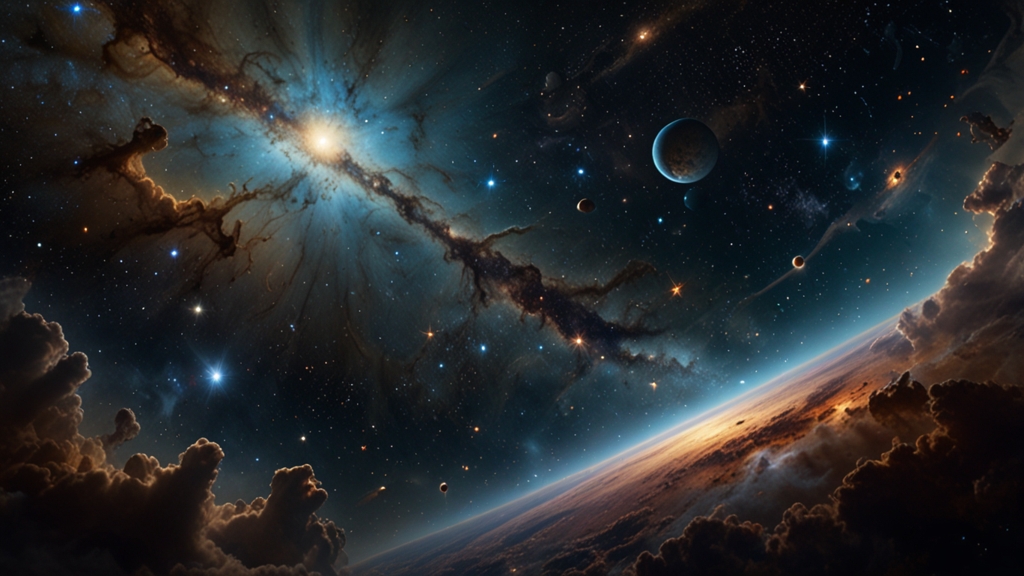Unraveling the Mysteries of Black Holes: Are We Living in a Cosmic Horror?
Black holes have long fascinated both scientists and the general public. These enigmatic objects, with their incredible gravitational pull, seem to defy the fundamental laws of physics. As we delve deeper into the mysteries of black holes, one can't help but wonder: Are we living in a cosmic horror?
The Nature of Black Holes
At their core, black holes are regions of space where gravity is so intense that nothing, not even light, can escape. They are formed when massive stars exhaust their nuclear fuel and collapse under their own gravity. This collapse results in a singularity, a point of infinite density, surrounded by an event horizon, the boundary beyond which nothing can return.
The concept of black holes challenges our understanding of the universe. According to Einstein's theory of general relativity, as one approaches the event horizon, time slows down relative to an outside observer. This phenomenon, known as time dilation, adds a surreal dimension to the already eerie nature of black holes.
The Information Paradox
One of the most baffling aspects of black holes is the information paradox. According to quantum mechanics, information about a physical system cannot be destroyed. However, if an object falls into a black hole, all information about it appears to be lost once it crosses the event horizon. This contradiction between quantum mechanics and general relativity has perplexed scientists for decades.
The information paradox has led to numerous theories and debates. Some physicists propose that information might be preserved in a different form, possibly as "holographic" imprints on the event horizon. Others suggest that black holes might connect to other regions of space-time, acting as portals or wormholes. Despite these intriguing ideas, a definitive solution remains elusive.
Hawking Radiation and Black Hole Evaporation
In 1974, Stephen Hawking made a groundbreaking discovery: black holes emit radiation. This phenomenon, known as Hawking radiation, occurs due to quantum effects near the event horizon. Over time, as black holes emit this radiation, they lose mass and eventually evaporate. This startling revelation has deep implications for our understanding of the universe.
"Black holes aren't as black as they are painted. They are not the eternal prisons they were once thought. If you feel you are in a black hole, don't give up. There's a way out." - Stephen Hawking
This optimistic perspective suggests that black holes might not be the end of the road for information or matter. Instead, they could be part of a more complex, dynamic system where information is transformed rather than destroyed.
Black Holes and Cosmic Horror
The concept of black holes can evoke a sense of cosmic horror, a feeling that we are but mere specks in an incomprehensible universe governed by forces beyond our control. The notion that black holes could serve as gateways to other dimensions or realities feeds into this existential dread.
However, while black holes are indeed strange and formidable, they are also a testament to the incredible power and beauty of the cosmos. Rather than inspiring fear, they can inspire awe and curiosity. By studying black holes, we push the boundaries of our knowledge and gain a deeper appreciation for the intricate workings of the universe.
"The most beautiful thing we can experience is the mysterious. It is the source of all true art and all science." - Albert Einstein
The Future of Black Hole Research
As technology advances, our ability to study black holes will continue to improve. The Event Horizon Telescope has already provided us with the first-ever image of a black hole, a stunning achievement that opens new avenues for research. Gravitational wave detectors, like LIGO and Virgo, have also detected ripples in space-time caused by black hole mergers, offering new insights into these enigmatic objects.
Researchers are also exploring the potential connections between black holes and other cosmic phenomena, such as dark matter and dark energy. These investigations could lead to a more unified understanding of the universe, bridging the gap between general relativity and quantum mechanics.
Conclusion
Black holes remain one of the most mysterious and captivating subjects in modern astrophysics. While they may evoke a sense of cosmic horror, they also represent the frontier of human knowledge and curiosity. As we continue to unravel their secrets, we gain not only a deeper understanding of the universe but also a greater appreciation for the beauty and complexity of the cosmos.
Are we living in a cosmic horror? Perhaps. But it's also a cosmic wonder, filled with opportunities for discovery and exploration.











